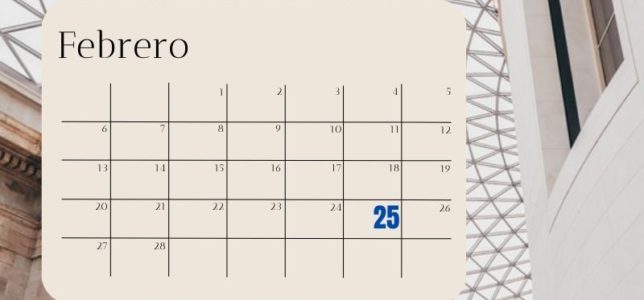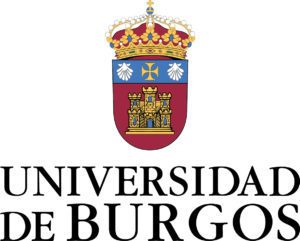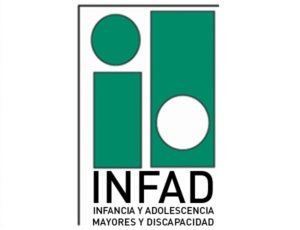AccessCult – Final Conference
International Congress on Accessibility to Cultural Heritage. “Innovative projects and experiences”.
Venue: University of Burgos
Facultad de Ciencias de la Salud. Salón de actos “(Antiguo Hospital Militar)”
Date:
25th February of 2023
Registration until:
24th February of 2023
“Attendees without prior registration: free entry until full capacity”
(no type of certificate will be issued if prior registration has not been made)
ORGANIZERS
Presentation
Jerónimo González Bernal
University of Burgos
Among the 17 Sustainable Development Goals (SDGs), the third one focuses on “ensuring healthy lives and promoting well-being for all people at all ages”. However, there are inequalities in access to culture and cultural heritage for all people regardless of their functional ability.
This Congress is proposed as part of the European Project Erasmus+ AccessCULT, whose mission is to increase the accessibility of museums and galleries for people with disabilities, to enable their participation in the activities carried out by museums and also to strengthen the connections between museums and associations of people with disabilities, in order to create a basis for a good cooperation in the future, as well as enriching regional policies with culture and heritage as an added value for socio-cultural sustainability, by exchanging experiences through synergy between the higher education sector, the cultural sector and people with disabilities with the help of communication and collaboration, taking into account the effects of innovation and creating a knowledge base that can span far beyond the end of the project.
Despite the growing number of projects and initiatives involving people with disabilities, they rarely have the opportunity to actively contribute to project outcomes as co-creators. From the Organising Committee of the “International Congress on Accessibility to Cultural Heritage. Innovative projects and experiences” we want to contribute some innovative ideas and solutions for the access to cultural heritage for all in equal conditions, taking into account the diverse conditions of the whole population by removing all kinds of barriers that prevent the enjoyment of cultural heritage for certain groups or in certain moments of the life of all people. This International Congress encourages the creation of spaces for joint interdisciplinary reflection between professionals from the fields of social and health care, disability and culture, with the collaboration of people with specific accessibility needs themselves, in order to jointly search for solutions that guarantee access to and enjoyment of cultural heritage for all.
THEMATIC AREAS
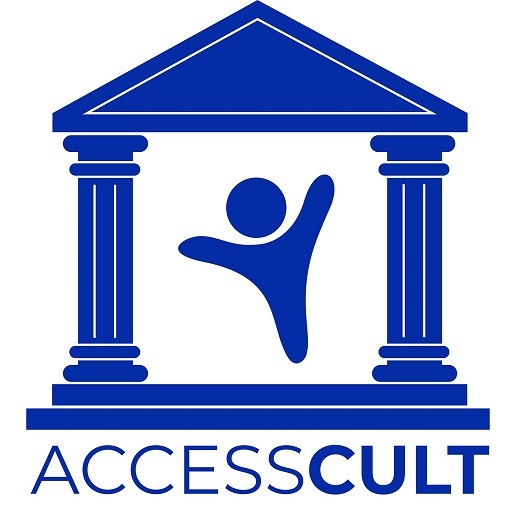
- Design for All and Universal Accessibility
- Accessibility to Cultural Heritage
- Art and people with disabilities
- Cultural Heritage and people with disabilities
- Good practices in Universal Accessibility
PROGRAMME
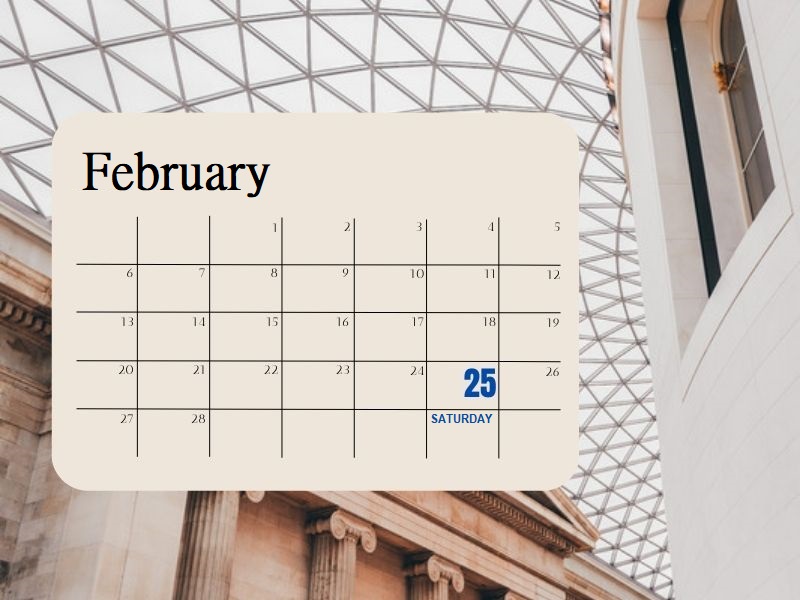
10:00 h: Inauguration of the congress.
- Jerónimo J. González Bernal. Principal Investigator of the Erasmus+ AccessCULT Project. University Professor.
- AccessCULT Project: Needs analysis, reference framework and design of educational modules (IO1- IO2). Jessica Fernández Solana. Assistant Professor. University of Burgos.
10:30 – 12:00 h: Round table 1. Experiences on Accessibility
- “Cultural heritage and accessibility in the city of Burgos”. Ignacio Mª González de Santiago. Cultural Coordinator at Burgos City Council and associate professor at University of Burgos, in the area of Art History.
- “The Museum of Aromas; a sensory experience for inclusion” Jonatan Talavera Benito.
- “Art to touch” Miriam Rodríguez Fernández, graduate in Audiovisual Communication at the University of Burgos.
12:00 – 14:00: Round table 2. AccessCULT Project: Training modules.
- Higher Education Module (IO3) “Innovative higher education teaching content to achieve sustainable ACCESSibility of CULTtural heritage for ALL. AccessCULT Project”. Mirian Santamaría Peláez. Lecturer at the University of Burgos.
- Participation, collaboration and co-creation of people with disabilities in creation of cultural heritage: Meeting participatory approaches in HEI curriculum through Erasmus+ project ACCESSCULT” Dr. Urša Valič, assistant professor, Department of Ethnology and Cultural Anthropology, University of Ljubljana, Slovenia.
- Online training module for adults (IO4) “Accessible Cultural Heritage for All” for cultural workers. Amara García Belloso from Asociación INFAD
12:00 – 14:00 h: Papers presentation 1.
- ESTADO FUNCIONAL, CALIDAD DE VIDA Y ACCESIBILIDAD DE PERSONAS CON COVID PERSISTENTE. Rodrigo Vélez-Santamaría, Jessica Fernández-Solana, Mirian Santamaría-Peláez, Fátima Méndez, Bárbara Oliván, Cruz Bartolomé, Jon Shoorlemmer, David Lerma y Sandra León Herrera
- Diversidad e Inclusividad de Sonorama. Art de Troya. Luis Cuellar.
- RECREANDO LA IMAGINACIÓN: más allá de la radio. RECREATING THE IMAGINATION: beyond the radio. Carmen Cordero Méndez, Mariano Fresnillo
- Rutas Científicas, Artísticas y Literarias: un programa educativo cultural e inclusivo. Camacho-Conde, José Antonio; Muñoz-Arbona, David Juan.
- MODIFICANDO ACTITUDES EN EL CONTEXTO MUSEÍSTICO: “CULTURA SERVIDA EN CERÁMICA” María Teresa Recuerda Solana, Juan Antonio Salmerón Aroca, Silvia Martínez De Miguel López
14:00 – 16:00 h: Lunch break.
16:00 – 18:00 h: Round table 3. Innovative projects in Accessibility.
- “Art as a possibility of employment for all: Dibuvoces Project”. Lorena Saiz Martínez from Berbiquí Association, Juan Elena (Artist of the Berbiquí Association) and Inés Santamaría (Artistic Coordinator of the Berbiquí Association).
- “Cognitive accessibility is a key right.” Rebeca Garcia Rodriguez; Head of European Erasmus projects, Grupo Aspanias. Natalia Zatón Ojeda; responsible for cognitive accessibility, Grupo Aspanias.
- AccessCULT (IO5): “Implementation of the educational module and its evaluation Studies / analysis”. Mirian Santamaría Peláez. Lecturer at the University of Burgos.
- AccessCULT (IO6): “Catalogue of recommendations and follow-up opportunities”. Mirian Santamaría Peláez. Lecturer at the University of Burgos.
17:00 – 19:00 h: Papers presentation 2.
- TUT4IND – Training University Teachers for the Inclusion of People With Intelectual Disabilities Aspanias Burgos
- Employabilty. Aspanias Burgos
- El Programa MUS-E: vehículo de inclusión, convivencia y arte para alumnos con discapacidad. Muñoz-Arbona, David Juan; Camacho-Conde, José Antonio
- Un enfoque a la accesibilidad desde el Ictus: funcionalidad, dependencia y calidad de vida. Jessica Fernández-Solana, Mirian Santamaría-Peláez, Josefa González-Santos, Jerónimo J. González-Bernal y Rodrigo Vélez Santamaría
- En el Patio de Joaquim: ¡aquí no se queda ningún niño! Daniella Forchetti.
- “Formando Mediadores” y “Sui Géneris. Arte, publicidad y estereotipos”. Dos proyectos para personas con diversidad funcional en el marco de los Programas Prado Social y Prado Inclusivo. Tania Ugena Candel
- Accesibilidad y alfabetización emocional a través del arte contemporáneo. Javier González García
19:00 h: Congress closing
Organising committee
Mirian Santamaría Peláez
José Ángel Casas Barrigón
Jerónimo J. González Bernal
Florencio Vicente Castro
Josefa González Santos
Jessica Fernández Solana
Ana Amparo Gentil Gutiérrez
Luis Alberto Mínguez Mínguez
Ana Isabel Obregón Cuesta
Maha Yahou
Lucía Simón Vicente
Lorena Saiz Martínez
María del Mar de Diego González
Rocío Pardo Hernández
Esteban Sánchez González
Ana Isabel Sánchez Iglesias
Carla Collazo Riobó
Amara García Belloso
Scientific committee
Mirian Santamaría Peláez
José Ángel Casas Barrigón
Jerónimo J. González Bernal
Florencio Vicente Castro
Josefa González Santos
Jessica Fernández Solana
Ana Amparo Gentil Gutiérrez
Luis Alberto Mínguez Mínguez
Ana Isabel Obregón Cuesta
Maha Yahou
Paula Rodríguez
Rodrigo Vélez Santamaría
Lucía Simón Vicente
Álvaro da Silva González
Lorena Saiz Martínez
María del Mar de Diego González
Rocío Pardo Hernández
Esteban Sánchez González
Ana Isabel Sánchez Iglesias
Carla Collazo Riobó
SUBMISSION STANDARDS
- All signatories of the papers must be registered at the Congress.
- Registration must be formalised prior to the submission of the paper for evaluation and/or admission by the Scientific Committee.
- Papers must be fully written and finalised, following the presentation format for each type of paper (Papers or Posters).
- Papers must be original and may be presented in English and/or Spanish.
- The official languages of the Congress will be Spanish and English.
- The deadline for submission of abstracts is 30/01/2023.
- The deadline for submission of full papers (communication or poster) is 15/02/2023. As a consequence of the above, for printing reasons, no subsequent corrections will be accepted.
- Submissions must be sent by e-mail to the following address: mspelaez@ubu.es
- It will be compulsory to send the title, abstract and name of the participants of the work in the registration form on this website.
- Each paper will be allowed 10 minutes of presentation time
Papers
The Paper shall not exceed 4,500 words and shall include the following information:
1. Title.
2. Author(s),
3. Identification data of the author(s).
4. Abstract / Summary (compulsory in the language of the communication and English).
5. Keywords (separated by semicolon).
6. Subject area. Background of the subject to be dealt with.
7. Research objectives.
8. Sample and/or participants.
9. Methodology and/or instruments used.
10. Results achieved.
11. Discussion.
12. Conclusions.
13. Bibliographical references according to APA standards.
The first page of the paper should include:
– Title (no longer than 85 characters, including spaces).
– Full name(s) of the author(s) (first name first followed by surname(s)).
– Work centre / Univesity together with the e-mail address of the author(s) or first author(s).
– Abstract (no more than 300 words) and keywords in Spanish, or any other language of the European Community, plus Abstract in English (no more than 300 words), and also compulsory the title, abstract and keywords (separated by semicolons) must appear in both languages.
The following pages should contain the body of the paper, the sections of which should be written and arranged in strict accordance with the APA Manual of Publication Style, latest edition. Tables, figures and illustrations should be numbered consecutively and legibly placed within the text.
The text of the paper should be sent in the following form:
– WORD format.
– Font: Times New Roman
– Size: 12 pt
– Font style: Normal
– Single line spacing
– Justified text
– Paragraphs will be separated by blank spaces.
Accepted papers will be grouped into thematic panels by the Scientific Committee and each participant will be given 10 minutes for their presentation (there will be a question and answer session at the end of each panel).
Posters
Posters are graphic presentations of a scientific, technological or professional work. At least one of the authors must be present during the poster presentation to explain and discuss the content with the audience (timetable will be indicated in the programme).
The proposal and execution of the poster will include:
1. Title.
2. Author(s).
3. Work Centre / University and e-mail address.
4. Abstract (compulsory in the language of the communication).
5. Key words.
6. Background information.
7. Aims and objectives.
8. Participants.
9. Method.
10. Results.
11. Conclusions.
Other data to be taken into account:
1. The organisation will provide the space for the poster.
2. The poster will normally have the following dimensions: 100 cm high by 80 cm wide (approx. DIN-A0), in vertical format. Recommendations:
– Font: Arial or Helvetica (bold).
– Size: 36 point (visibility at 1.5-2 metres).
3. The text submitted will follow the same rules as for articles, communications, papers, following APA Standards. AND IT SHALL INCLUDE AN ABSTRACT of between 200 and 300 words, together with between 4 and 6 key words.
4. The poster material accepted must be prepared by the author.
5. The author will be responsible for placing the poster in the place and on the date assigned to him/her, as well as for removing it. If the author does not remove it, it is understood that he/she is not interested in keeping it and therefore authorises the Congress Organising Committee to dispose of the material.
6. The poster must be related to one of the thematic lines proposed at the Congress.
REGISTRATION
REGISTRATION WITH PAPER: abstract submission by 30th January 2023
SUBMISSION OF FULL PAPERS: until 15th February 2023 to the following email: @ubu.es
REGISTRATION WITHOUT PAPER: until 24th February 2023

